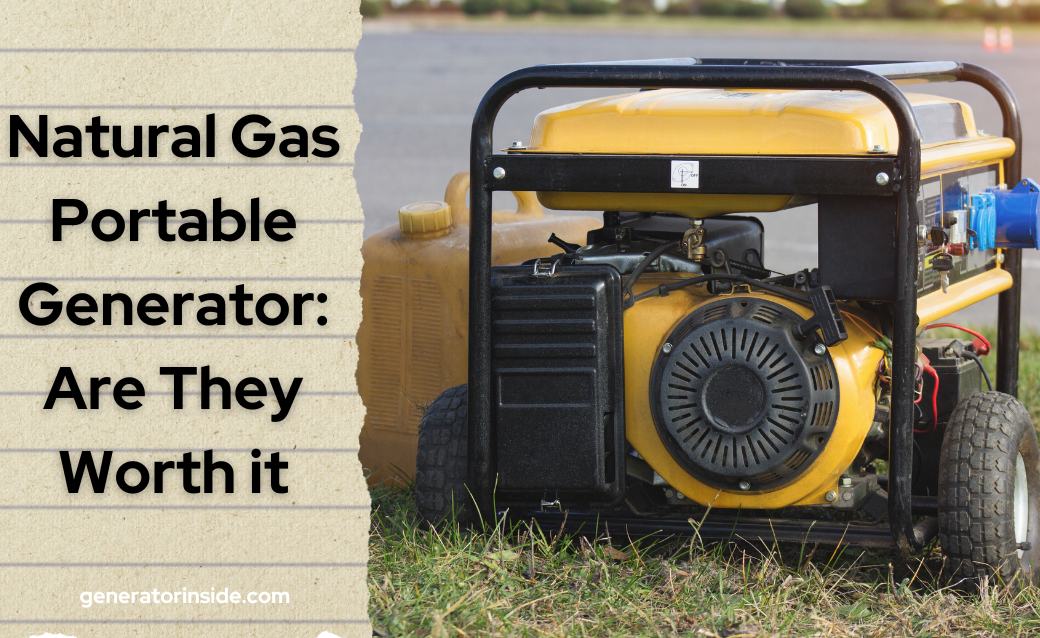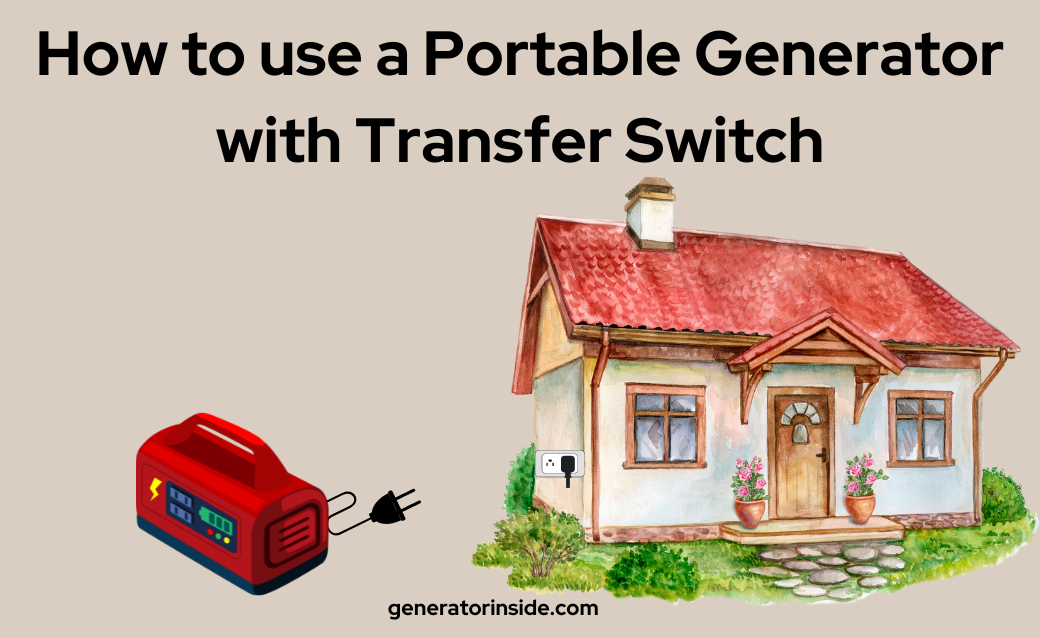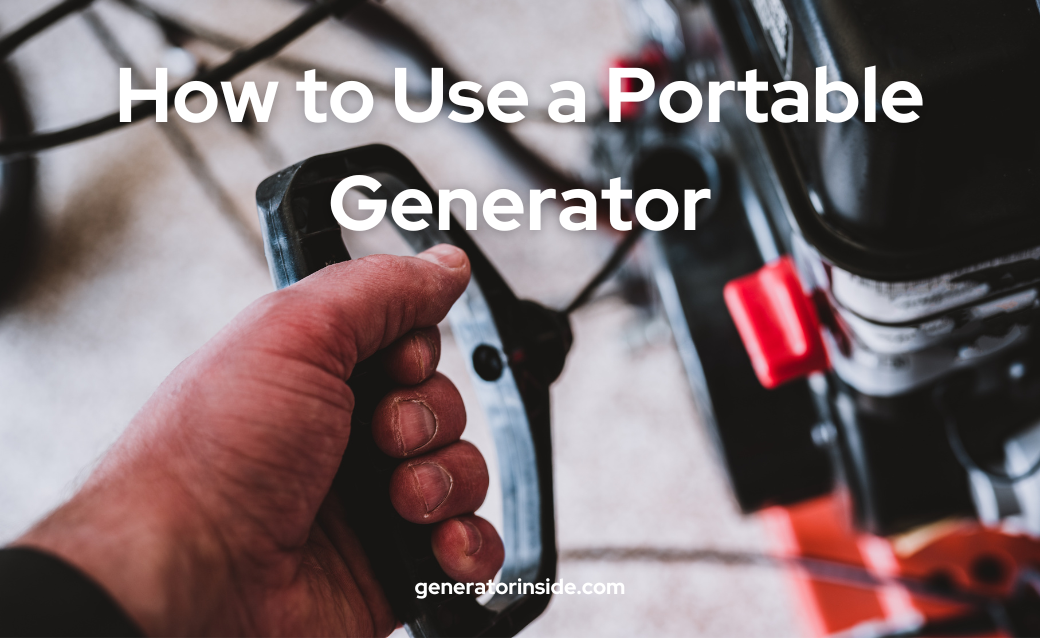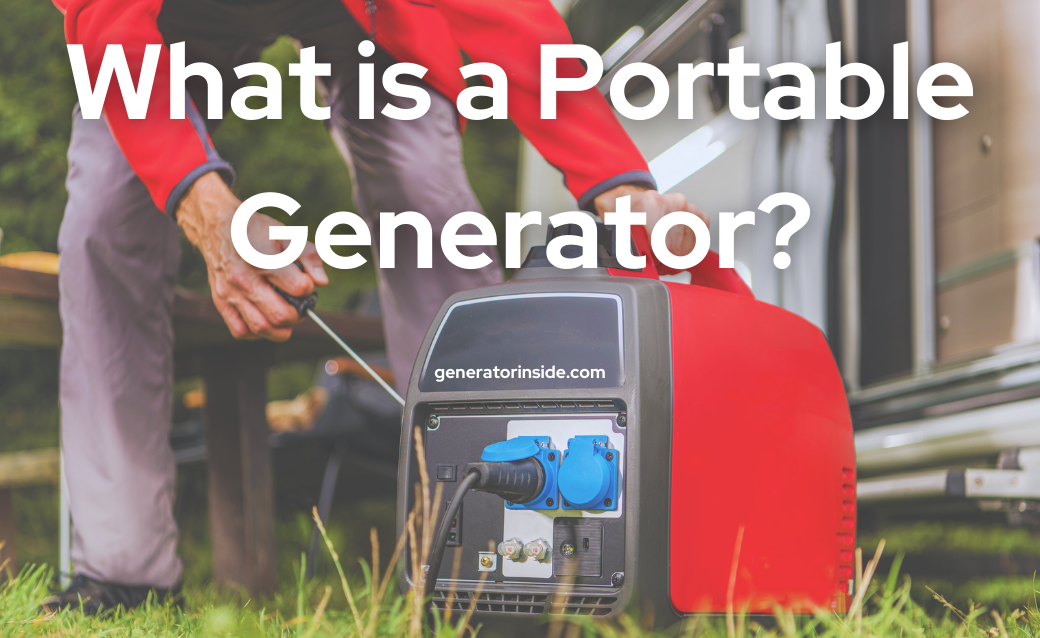
You must have been in one of these two scenarios: spending time outdoors in secluded areas and going camping OR gotten struck by a natural disaster showing up as an unforeseen event causing a power outage at your house. In either scenario, you may be familiar with a portable generator, a helpful device that may supply the electricity in the absence of a power system.
What is a portable generator, precisely, and how does it operate? We’ll examine portable generators in-depth in this blog covering everything from their fundamental uses to their many applications. We’ll provide you with all the information you need to know about portable generators, regardless of whether you’re an experienced explorer or simply seeking a trustworthy backup power source.
What is a Portable Generator?
A portable generator is a device that produces energy using combustion engines or diesel engine like gasoline and diesel respectively. These devices are made to offer short-term and portable power sources during times when grid power is absent or unstable.
There are several uses for portable generators including camping, outdoor activities, building sites, and providing a backup power for homes and businesses. They’re also used in regions that have long-lasting power outages due to natural calamities like hurricanes, tornadoes, and earthquakes.
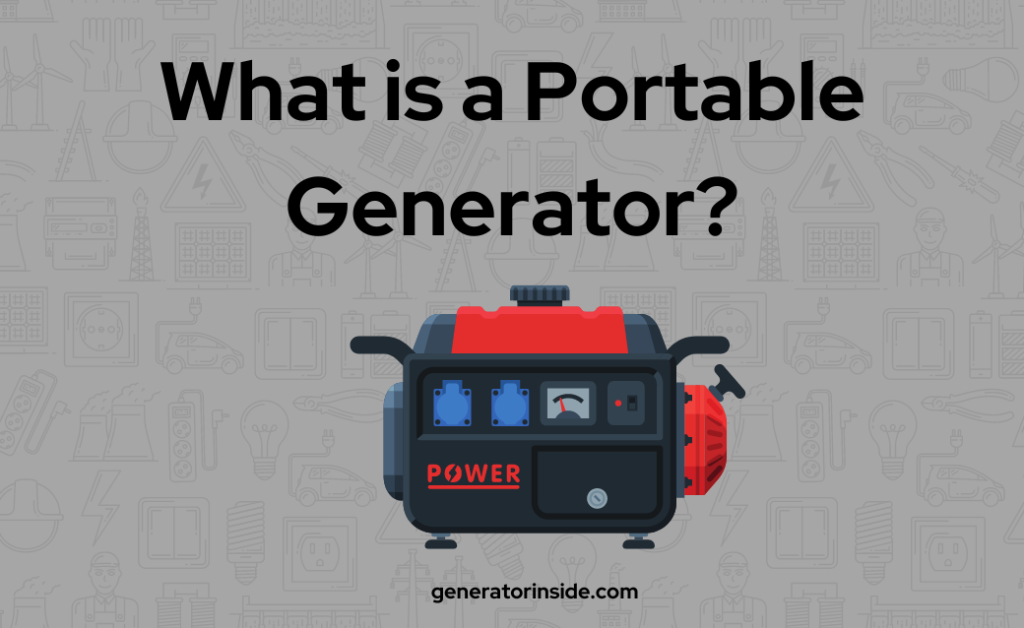
An engine, an alternator, a fuel tank, and outlets for attaching equipment make up a conventional portable generator. The alternator which is driven by the engine produces electricity that’s subsequently distributed through the outlets. There are many different sizes of portable generators- from little versions that can only power a few items to big models that can power whole homes.
The versatility of portable generators is one of their main benefits. They’re portable which make them perfect for outdoor activities or construction locations without access to grid power. During times of crisis, portable generators also offer a much more reliable backup power ensuring that essential appliances and electronics may keep running even when the grid is down.
Yet it’s important to remember that improper handling of portable generators can be deadly. Due to the fact that portable generators emit this dangerous gas as a result of combustion, carbon monoxide poisoning is a serious concern. You have to take the appropriate safety precautions such as setting the generator up in a place that gets enough ventilation and never operating it indoors.
What is a Portable Generator Used for?
Portable generators are adaptable tools that can generate energy when and when it’s needed in different ways and conditions.They may be found in multiple sizes; from tiny and simple to huge and industrial and they’re normally driven by gasoline, propane, or diesel fuel. Portable generators are the best option for both indoor and outdoor use because of how simple they are to travel with and set up.
1. Used during Power Outages
A portable generator is frequently used as a backup power source during power outages. You may be without power for several hours or even days as a result of these outages which can be caused by bad weather, utility maintenance, or other unanticipated circumstances. Once the main power source is restored, you can keep critical appliances and equipment functioning in your house or place of work with the help of a portable generator.
2. Camping and Outdoor Activities
Another common option for camping and outdoor activities is a portable generator. They let you take advantage of the great outdoors without giving up house conveniences like lights, fridges, and technology. You may use a portable generator to power your RV, camping spot, or cottage, giving you access to the energy you need to keep cozy and have fun.
Portable generators are used in several other situations other than the typical ones mentioned above. They’re frequently used in distant regions without access to a primary power source to power tools and equipment on building projects. Moreover, they’re utilized by event organizers to supply temporary electricity for outdoor events like concerts and festivals.
Types of Portable Generators
There are different types of portable generators and each one is made to meet a particular demand for electricity. Knowing which sort of generator would work best for you is very important while making your choice. Here are the different many kinds of portable generators and their applications.
- Portable Gas Generators
Portable generators with gasoline engines are the most prevalent kind. Electricity is produced using gasoline as fuel. They’re available under a range of capacities-from 1000 watts to 10,000 watts and are perfect for powering small appliances and power equipment. Generators that run on gasoline are readily available, reasonably priced, and simple to use. Unfortunately, they may be loud and are not the most fuel-efficient.
- Diesel-powered generators
Generators driven by diesel use less fuel than generators powered by gasoline. They’re a great deal for powering larger appliances and equipment since they generate energy using diesel fuel. However, diesel generators cost more than gasoline generators but are more trustable and have a longer lifespan. Moreover, they emit less pollution and are quieter than generators powered by gasoline.
- Propane-Powered Generators
Generators that run on propane are growing in popularity because of how well they burn fuel and produce less pollution. They’re perfect for powering small to medium-sized equipment since they produce electricity using propane gas. While more costly than gasoline generators, propane generators use less fuel and emit fewer pollutants. They’re ideal for emergencies since they have a longer shelf life than gasoline and diesel fuel.
- Inverter Generators
A more recent type of portable generator, inverter generators deliver clean electricity ideal for delicate gadgets like laptops, cellphones, and cameras. They’re more fuel-efficient than conventional generators because they use advanced electronics to convert DC electricity to AC power. Moreover, inverter generators are quieter and emit less pollutants. Although they cost more than conventional generators, they are more effective and dependable.
- Solar-Powered Generators
Solar-powered generators are a clean and environmentally friendly alternative to traditional generators. They’re great for powering tiny appliances and devices since they use solar panels to turn sunlight into electricity. Solar-powered generators are fuel-free, silent, and emit no pollution. They cost more than conventional generators though and the size of the solar panels determines how much electricity they can produce.
Can a Portable Generator Run a House?
Whether there are power outages, an emergency, or you require electricity in a distant location without access to the grid, portable generators can save your life. Yet whether a portable generator can power a house is a common question many people have. The size of the generator and your home’s power requirements are two of the factors that will determine the response.
The generator’s power output is the first item to make calculations. The majority of portable generators have an output of 1,000–10,000 watts. You must understand how much electricity your home requires in order to decide whether a generator can supply it.
The wattage of all the electrical lights, appliances, and other items in your home that you want to power may be added together to determine this. To run all necessary appliances, a normal home would need between 5,000 and 10,000 watts of power.
Once you have calculated your power needs, you need to ensure that the generator you choose can provide that exact amount of power. You should be aware that a portable generator can’t supply power to your entire house at once.
A transfer switch will be required to link the generator to your home’s electrical system. You’ll be able to use this to power the circuits that run your home’s heating and cooling systems, refrigerator, and lighting.
Safety Precautions to Consider When Using a Power Generator For your House
Now that we know what a portable generator is, it’s essential that we take certain safety measures to protect you and your loved ones. Here are some important safety measures to remember:
- Operate the Generator Outside Your Home
Using a generator outside of your home is one of the most crucial safety measures to follow while using one to power your house. By doing this, you can potentially avoid carbon monoxide poisoning which is deadly.
Never use a generator in a building, a garage, or any other enclosed location. To ensure appropriate airflow, always run the generator in a space that is well-ventilated and away from open windows and doors.
- Ground the Generator Properly
It’s also important to ground the generator properly to prevent electrical shock or electrocution. To defend against electrical failures, grounding the generator involves connecting it to a grounding cable or rod. Be careful to ground the generator according to the manufacturer’s recommendations.
- Use the Correct Cords and Connectors
Use the proper wires and connections to connect the generator to your home’s electrical system. The cords and connections need to be rated for the generator and your powered appliances’ voltage and current. This will reduce the chance of electrical fires or appliance damage.
- Consider the Fuel Source
The fuel supply should be fully considered when powering a portable generator electricity for your house. Diesel, propane, or gasoline can all be used to power portable generators. The most popular and accessible generators are those that run on gasoline. Generators powered by propane and diesel, however, are more fuel-efficient and have a longer operating range. Choose the fuel source that best suits your requirements and financial situation.

Are Portable Generators Worth it?
Your demands and conditions will eventually determine whether portable generators are worth the hype or not. A portable generator can save your life if you live in a place where power outages are common or if they happen regularly because of bad weather. In order to keep you and your family safe and comfortable until the power is restored, a portable generator can provide access to electricity to power necessary electronics and appliances.
Ending Words (What is a Portable Generator?)
A portable generator may also be a fantastic addition to your kit if you love to go camping every weekend or take part in outdoor activities. It can power your appliances and electrical gadgets to enhance your comfort. But purchasing a portable generator might not be beneficial if you don’t regularly go camping or encounter power outages.
The price is another thing to list down. Depending on their size and power output, portable generators can cost anywhere from a couple hundred to several thousand dollars! You must also look for the expense of petrol which may quickly mount up in this era of inflation. It might not be worth the price if you’re on a limited budget or don’t frequently require a portable generator.
Also, it’s critical to be aware of any potential dangers and risks related to portable generators. They release carbon monoxide, which if used in a poorly ventilated location can be fatal. Always adhere to safety precautions, and never operate a portable generator indoors or in a closed area.
Ultimately, you have to conduct research and pick a reliable manufacturer with positive ratings if you decide to bring in one to run your house or use outdoors. To ensure that your generator runs efficiently and safely, make sure you maintain it correctly and adhere to any safety instructions.
Also Read:









